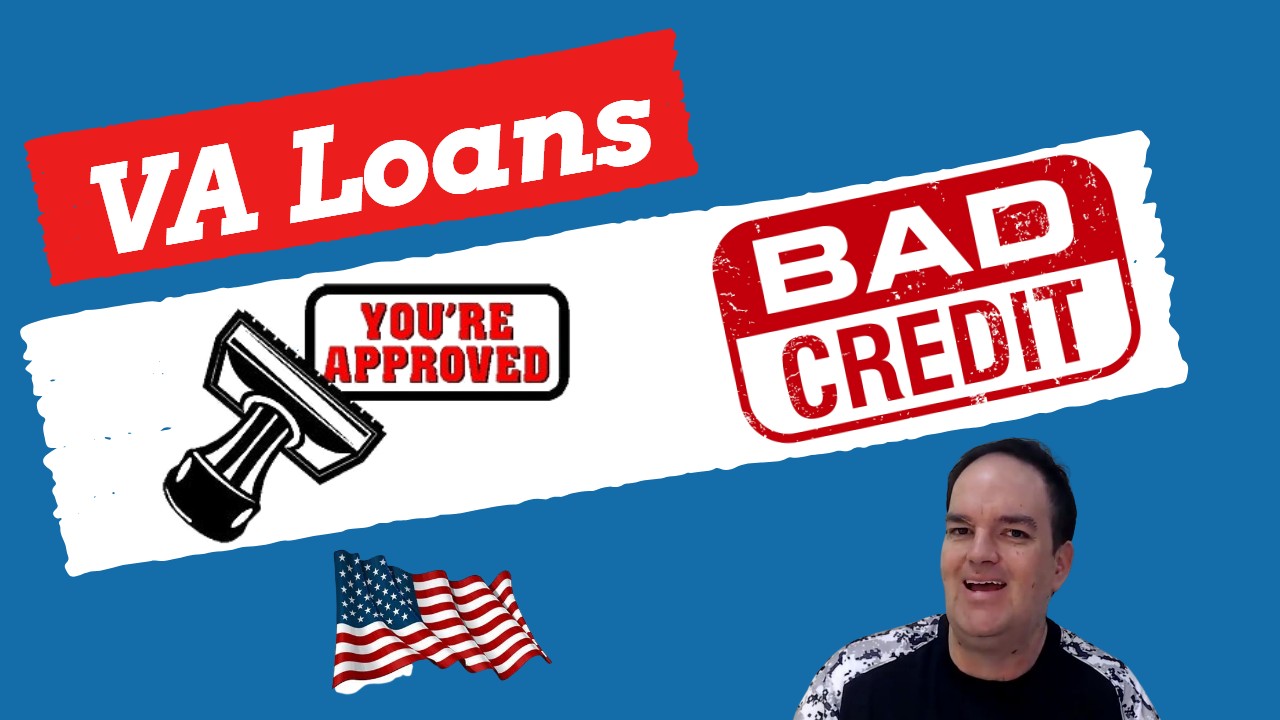Home>Finance>How To Get A Business Loan With No Money And Bad Credit


Finance
How To Get A Business Loan With No Money And Bad Credit
Published: January 5, 2024
Learn how to secure a business loan with no money and bad credit. Our finance experts will guide you through the process and help you get the funding you need.
(Many of the links in this article redirect to a specific reviewed product. Your purchase of these products through affiliate links helps to generate commission for LiveWell, at no extra cost. Learn more)
Table of Contents
- Introduction
- Understanding Business Loans
- Options for Getting a Business Loan with No Money and Bad Credit
- Personal Loans
- Microloans
- Peer-to-Peer Lending
- Crowdfunding
- Grants and Government Programs
- Collateral-Free Loans
- Alternative Financing Options
- Tips for Applying for a Business Loan with No Money and Bad Credit
- Conclusion
Introduction
Starting or expanding a business often requires financial backing, but what if you have no money and bad credit? It may seem like an impossible situation, but don’t lose hope just yet. While traditional lenders may be hesitant to approve loans under these circumstances, there are still options available to help you secure the funding you need.
Business loans are a common way for entrepreneurs to access capital to start or grow their ventures. These loans can come from banks, credit unions, or alternative lenders. However, having no money and bad credit can make it challenging to qualify for traditional business loans. Poor credit history and a lack of collateral may make lenders perceive you as a high-risk borrower.
But that doesn’t mean you should give up on your dreams of running a successful business. There are alternative financing options that cater specifically to individuals with no money and bad credit. By exploring these options and implementing the right strategies, you can increase your chances of obtaining the necessary funds to bring your business idea to life.
In this article, we will discuss various options for getting a business loan with no money and bad credit. We will explore alternative financing options such as personal loans, microloans, crowdfunding, peer-to-peer lending, grants, and government programs, as well as collateral-free loans. Additionally, we will provide some useful tips to help you navigate the loan application process and improve your chances of approval.
Remember, even if you have financial constraints and a less-than-perfect credit history, there are still opportunities available to fuel your entrepreneurial aspirations. With the right knowledge and determination, you can overcome these challenges and secure the funding you need to turn your business dreams into reality.
Understanding Business Loans
Before diving into the options for getting a business loan with no money and bad credit, it’s important to have a basic understanding of what business loans entail. A business loan is a type of financing designed to provide the necessary capital for starting a new business, expanding an existing one, or covering various business-related expenses.
Business loans typically come with specific terms and conditions, including interest rates, repayment periods, and collateral requirements. These loans can be obtained from traditional financial institutions like banks and credit unions, as well as alternative lenders.
There are various types of business loans available, each tailored to meet different funding needs. Some common types of business loans include:
- Term Loans: These loans provide a lump sum of money that must be repaid over a fixed period, with regular installment payments. Term loans are often used for long-term investments like purchasing equipment or expanding business operations.
- Lines of Credit: A line of credit is a flexible form of financing that allows borrowers to access funds as needed, up to a predetermined credit limit. Interest is only charged on the amount borrowed, making it a suitable option for managing cash flow fluctuations.
- Invoice Financing: Invoice financing, also known as accounts receivable financing, enables business owners to borrow money against unpaid customer invoices. Lenders provide a percentage of the invoice value upfront and collect repayment once the invoice is paid by the customer.
- SBA Loans: Small Business Administration (SBA) loans are government-backed loans designed to help small businesses access affordable financing. These loans come with favorable terms and lower interest rates, but they often require extensive documentation and a lengthy approval process.
When applying for a business loan, lenders typically assess the borrower’s credit history, repayment capabilities, business plan, and collateral (if required). Traditional lenders tend to place a significant emphasis on credit scores, making it challenging for individuals with bad credit to secure financing. However, alternative financing options exist to cater specifically to those with no money and bad credit.
Understanding the different types of business loans and their eligibility criteria is crucial for choosing the most suitable option for your situation. Now that we have a foundation in business loans, let’s explore the options available for getting a business loan with no money and bad credit.
Options for Getting a Business Loan with No Money and Bad Credit
Having no money and bad credit may seem like significant hurdles when it comes to obtaining a business loan, but there are alternative financing options available. These options cater specifically to individuals in similar situations, providing opportunities to access the funding needed to start or grow a business. Let’s explore some of these options:
- Personal Loans: One option is to consider taking out a personal loan instead of a business loan. Personal loans allow you to use the funds for any purpose, including starting or expanding a business. While personal loans may have higher interest rates compared to business loans, they can be easier to qualify for, especially if you have a good relationship with a lender or can find one that specializes in working with borrowers with bad credit.
- Microloans: Microloans are small loans typically offered by nonprofit organizations, community lenders, or online platforms. These loans are specifically designed to help small businesses and individuals with limited financial resources. Microloans often have less stringent credit requirements and may provide mentorship and support along with the financing.
- Peer-to-Peer Lending: Peer-to-peer lending platforms connect individual lenders with borrowers. These platforms eliminate the need for traditional banks and allow individuals to borrow directly from others. Peer-to-peer lending can be a viable option for obtaining a business loan with bad credit, as lenders on these platforms may be more willing to take on higher-risk borrowers.
- Crowdfunding: Crowdfunding has gained popularity in recent years as a way to raise funds for various projects, including business ventures. Through crowdfunding platforms, you can create a compelling campaign and attract individuals who are willing to contribute financially to your business. It’s important to note that crowdfunding successfully requires effective marketing and a compelling pitch to capture the attention and support of potential backers.
- Grants and Government Programs: Some government agencies and private organizations offer grants and programs specifically aimed at supporting small businesses and entrepreneurs. These grants do not require repayment, making them an excellent option for obtaining funding with no money. Research available grants and programs in your area and apply for those that align with your business objectives.
- Collateral-Free Loans: Some lenders offer collateral-free loans, which means you don’t need to provide any assets as security. While these loans may come with higher interest rates, they can be an option for securing financing without having to pledge assets. Look for lenders who specialize in providing loans to individuals with bad credit and no collateral.
- Alternative Financing Options: Alternative financing options, such as revenue-based financing or merchant cash advances, may also be available to individuals with bad credit. These options consider factors such as business revenue or credit card transactions to determine loan eligibility and repayment terms. However, it’s essential to thoroughly understand the terms and fees associated with these alternative financing options before pursuing them.
Remember to carefully research and compare the terms and conditions, interest rates, and repayment schedules of each option before making a decision. It’s also advisable to seek professional advice from financial advisors or business consultants who can guide you through the process of obtaining a business loan with no money and bad credit.
Now that we’ve explored the various options available, let’s move on to some essential tips for applying for a business loan with no money and bad credit.
Personal Loans
When looking to secure funding for your business with no money and bad credit, one viable option is to consider applying for a personal loan. Personal loans can be used for any purpose, including financing your business. While personal loans may have higher interest rates compared to traditional business loans, they can offer a solution for individuals with bad credit who may not qualify for business loans from banks or other lenders.
Here are some key points to consider when exploring personal loans:
- Eligibility: Personal loans often have less strict eligibility criteria compared to business loans. Lenders may take into account factors such as your income, employment history, and overall financial situation rather than focusing solely on credit scores. Look for lenders who specialize in working with borrowers with bad credit to increase your chances of approval.
- Loan Amount: Depending on the lender and your individual circumstances, personal loans may allow you to borrow enough capital to kickstart your business or cover necessary expenses. However, keep in mind that personal loans typically have lower limits compared to business loans.
- Interest Rates: Interest rates for personal loans can vary significantly depending on factors like your creditworthiness, loan term, and the lender’s policies. It’s important to shop around and compare rates from different lenders to find the most favorable terms.
- Repayment Terms: Personal loans typically have fixed repayment periods and set monthly installments. It’s crucial to carefully review the repayment terms and ensure that they are manageable within your business’s financial capabilities.
- Documentation and Proof of Income: Lenders will require you to provide documentation and proof of income to qualify for a personal loan. Be prepared to submit documents such as bank statements, tax returns, and pay stubs to verify your financial situation.
- Building Credit: Successfully managing a personal loan can help improve your credit score over time. By making timely payments and demonstrating responsible financial behavior, you can strengthen your creditworthiness, which may open up more financing options in the future.
It’s important to note that while personal loans can provide the funding you need, they also come with certain risks. If you are unable to repay the loan, it can negatively impact your credit score and may result in legal consequences. Therefore, it’s crucial to assess your business’s financial viability and ensure that you can meet the loan obligations before proceeding with a personal loan.
When considering a personal loan for business purposes, thoroughly research different lenders, read customer reviews, and compare terms to find the best fit for your needs. Ensure that you fully understand the interest rates, fees, and repayment terms to make an informed decision.
Now that we have explored personal loans, let’s move on to the next option for obtaining a business loan with no money and bad credit.
Microloans
If you have no money and bad credit, microloans can be an excellent option for securing the funding you need to start or expand your business. Microloans are small loans typically offered by nonprofit organizations, community lenders, or online platforms. These loans are specifically designed to support individuals with limited financial resources, including those with bad credit.
Here are some key points to consider about microloans:
- Loan Size: Microloans are generally smaller in size compared to traditional business loans. The loan amounts can range from a few hundred dollars to several thousand dollars, depending on the lender and your specific needs. While the loan amounts may be modest, they can still provide the necessary capital to launch a small business or cover essential expenses.
- Flexible Credit Requirements: Microloan lenders often have more flexible credit requirements compared to traditional lenders. They may consider factors beyond credit scores, such as your character, business plan, and commitment to the venture. This makes microloans an attractive option for individuals with bad credit or limited credit history.
- Lower Interest Rates: Microloans generally come with lower interest rates compared to other alternative financing options, such as payday loans. However, it’s important to note that interest rates may still be higher compared to traditional bank loans. The exact interest rate will vary depending on the lender and your creditworthiness.
- Mentorship and Support: In addition to funding, microloan programs often offer mentorship and support services to help borrowers succeed. This can include business counseling, networking opportunities, and access to workshops or training programs. Taking advantage of these resources can greatly enhance your chances of business success.
- Detailed Application Process: The application process for microloans typically requires documentation and a detailed business plan. Lenders want to ensure that borrowers have a clear vision for their business and a solid plan for repayment. Be prepared to provide financial statements, business projections, and other supporting documents to demonstrate your eligibility and commitment.
- Relationship Building: Microloan lenders often prioritize building relationships with borrowers. They may take the time to understand your business concept and provide personalized attention during the application and repayment process. Building a strong relationship with your lender can be beneficial for future financing needs and access to additional resources.
When considering microloans, it’s essential to research and identify reputable lenders who specialize in providing microfinancing to individuals in similar circumstances. Local community development organizations, nonprofit lenders, and online platforms are good places to start. Thoroughly review the terms and conditions, including repayment terms and interest rates, to ensure they align with your business objectives and financial capabilities.
In summary, microloans offer an accessible and affordable option for individuals with no money and bad credit to obtain the necessary capital for business ventures. They provide an opportunity to overcome barriers to traditional financing and can be a stepping stone toward financial success.
Next, let’s explore another option for getting a business loan with no money and bad credit: peer-to-peer lending.
Peer-to-Peer Lending
If you are seeking a business loan with no money and bad credit, peer-to-peer lending can be a viable option. Peer-to-peer lending platforms connect individual lenders with borrowers in need of financing, cutting out the traditional banks or financial institutions. This alternative lending model can provide opportunities for individuals with bad credit to secure the funds needed to start or grow their businesses.
Here are some key points to consider about peer-to-peer lending:
- Direct Borrowing: Peer-to-peer lending allows borrowers to directly connect with individual lenders through online platforms. This eliminates the need to deal with banks or financial institutions, potentially increasing your chances of securing funding.
- Flexible Eligibility Criteria: Peer-to-peer lenders often have more flexible lending criteria compared to traditional lenders. While they still assess borrowers’ creditworthiness, they may consider other factors in addition to credit scores, such as your business plan, income, or personal circumstances. This opens up opportunities for individuals with bad credit to receive funding.
- Competitive Interest Rates: Peer-to-peer lending platforms typically offer competitive interest rates, which may be lower than those offered by traditional lenders for borrowers with bad credit. The interest rates can vary depending on factors such as your creditworthiness, the loan amount, and the platform itself. It’s important to compare rates from different peer-to-peer lending platforms to find the most favorable terms.
- Flexible Loan Terms: Peer-to-peer loans often come with flexible repayment terms, allowing borrowers to choose loan durations that fit their financial situation. This flexibility can be beneficial for managing cash flow and ensuring that the loan payments align with your business’s revenue generation.
- Transparency and Borrower Protection: Peer-to-peer lending platforms typically provide transparency in terms of fees, interest rates, and repayment schedules. Additionally, many platforms have borrower protection measures in place to safeguard against fraudulent lenders or ensure fair lending practices.
- Building Investor Relationships: Peer-to-peer lending fosters a sense of community and relationship-building between borrowers and lenders. By interacting with individual lenders, you have the opportunity to showcase your business idea, garner support, and potentially build long-term relationships that can benefit you and your business beyond the initial loan.
When considering peer-to-peer lending, it’s important to choose a reputable platform and thoroughly review their terms and conditions. Conduct research, read peer reviews, and assess their track record in facilitating successful loan transactions. Additionally, be prepared to provide all necessary documentation, such as business plans, financial statements, and personal information, to secure your loan.
Peer-to-peer lending offers a unique alternative for individuals looking to obtain business loans with no money and bad credit. It provides an avenue for direct interaction with lenders and the potential for more favorable terms compared to traditional lending institutions.
Now that we’ve explored peer-to-peer lending, let’s move on to another alternative financing option: crowdfunding.
Crowdfunding
If you have no money and bad credit but a compelling business idea, crowdfunding can be an excellent option for raising funds. Crowdfunding platforms allow entrepreneurs to showcase their projects and attract financial support from a large number of individuals, known as backers. This alternative financing method can provide the necessary capital to launch or expand your business.
Here are some key points to consider about crowdfunding:
- Wide Reach and Audience Engagement: Crowdfunding platforms provide access to a large audience of potential backers who are interested in supporting innovative business ideas. This can give your business exceptional exposure and allow you to engage with potential customers and advocates from the very beginning.
- Various Funding Models: Crowdfunding platforms typically offer different funding models, including donation-based, rewards-based, equity-based, and debt-based crowdfunding. Each model has its own unique requirements and expectations, so it’s important to choose the best fit for your business objectives.
- Compelling Campaign and Storytelling: A successful crowdfunding campaign relies heavily on creating a compelling story and engaging content to capture the attention and support of potential backers. Utilize videos, images, and detailed descriptions to effectively communicate your business idea, its value, and the potential impact it can make.
- Financial Incentives: In reward-based crowdfunding, you can offer various incentives to backers based on their contribution level. These incentives can be products, services, or exclusive experiences related to your business. It’s important to carefully plan and deliver these rewards to maintain a positive relationship with your backers.
- Marketing and Promotion: While crowdfunding provides access to a large audience, it’s essential to actively market and promote your campaign to generate interest and drive traffic to your crowdfunding page. Utilize social media, email marketing, and other digital marketing strategies to create buzz and encourage people to support your business.
- Transparency and Accountability: Backers appreciate transparency and regular updates throughout the crowdfunding campaign. Keep your backers informed of your progress, challenges, and milestones. Demonstrating accountability helps build trust and credibility with your supporters.
- Campaign Duration and Goals: Set a realistic campaign duration and funding goal. A shorter campaign can create a sense of urgency, while a longer campaign allows for more time to reach your target. Additionally, consider breaking down your funding goal into smaller milestones to showcase progress and maintain momentum.
It’s crucial to thoroughly research crowdfunding platforms and choose the one that aligns with your business goals, target audience, and funding model preference. Review the fees, terms, and conditions associated with each platform to ensure they suit your needs.
Keep in mind that a successful crowdfunding campaign requires effective marketing, a compelling pitch, and active engagement with backers. Put effort into creating an engaging campaign that tells your business’s story effectively and motivates people to support your venture.
Now that we have explored crowdfunding, let’s move on to another option for obtaining a business loan with no money and bad credit: grants and government programs.
Grants and Government Programs
If you have no money and bad credit, exploring grants and government programs can be a valuable option for obtaining funding for your business. Grants are financial resources provided by government agencies, private organizations, and foundations to support specific types of businesses or initiatives. These grants do not require repayment, making them an attractive option for individuals with limited resources.
Here are some key points to consider about grants and government programs:
- Research Eligibility Criteria: Grants and government programs often have specific eligibility criteria based on factors such as business sector, location, or impact on the community. Research and identify grants that align with your business goals and determine if you meet the requirements.
- Application Process: Applying for grants typically involves a detailed application process, including the submission of business plans, financial statements, and supporting documentation. Take the time to carefully complete the application and ensure you provide all the necessary information to increase your chances of success.
- Seek Professional Assistance: If you’re unfamiliar with the grant application process or find it overwhelming, consider seeking assistance from professionals such as grant writers or business consultants who specialize in securing grants. They can help navigate the process and increase your chances of success.
- Government Loans and Programs: In addition to grants, government agencies often offer loans and programs tailored to support small businesses. These loans may come with lower interest rates and more favorable terms compared to traditional lenders. Research programs offered by federal, state, and local government agencies to identify potential financing options.
- Nonprofit and Community Organizations: Nonprofit organizations and community development agencies may also offer grants or loans aimed at supporting local businesses and entrepreneurship. These organizations often focus on economic development and may be more willing to work with individuals who have limited financial resources or bad credit.
- Industry-Specific Grants: Some grants are specific to certain industries or sectors. Explore grants related to your business niche or industry to increase your chances of finding applicable funding opportunities. Trade associations and industry networks are valuable resources for identifying sector-specific grants.
- Comprehensive Research: Effectively securing grants requires comprehensive research. Look beyond national grants and explore regional or local funding opportunities. There are often grants specifically tailored to support businesses in underserved communities or those addressing specific social or environmental challenges.
Keep in mind that grants are highly competitive, and the application process can be rigorous. It’s important to be patient, persistent, and thorough when researching potential grants and applying for them. Additionally, be prepared to comply with reporting and monitoring requirements if you receive grant funding.
Government programs and grants can be an invaluable source of funding for individuals with no money and bad credit. By carefully researching and applying for grants aligned with your business objectives, you can secure the financial support needed to launch or grow your business.
Now that we’ve explored grants and government programs, let’s move on to another option for obtaining a business loan with no money and bad credit: collateral-free loans.
Collateral-Free Loans
If you have no money and bad credit, obtaining a traditional business loan that requires collateral can be challenging. However, there are lenders who offer collateral-free loans, which can be a viable option for securing funding for your business. Collateral-free loans do not require borrowers to provide assets as security, making them accessible to individuals with limited resources or bad credit.
Here are some key points to consider about collateral-free loans:
- No Collateral Requirement: Collateral-free loans provide an alternative for individuals who cannot offer assets, such as property or equipment, as collateral. This reduces the risk for borrowers, especially those with no money or valuable assets.
- Favorable Approval Criteria: Lenders who offer collateral-free loans often have more lenient approval criteria compared to traditional lenders. While they still assess the borrower’s creditworthiness, they may consider other factors such as business revenue, personal income, or industry experience. This approach increases the chances of approval for individuals with bad credit.
- Interest Rates and Terms: Collateral-free loans typically come with higher interest rates compared to traditional loans due to the increased risk for lenders. The exact interest rate and repayment terms will vary depending on factors such as your credit history, financial situation, and the lender’s policies. Carefully review and compare these factors across different lenders to find the best terms.
- Loan Amount: The loan amount available through collateral-free loans may be smaller compared to loans that require collateral. However, these loans can still provide the necessary capital to support your business needs, such as covering operating expenses, purchasing inventory, or investing in marketing efforts.
- Repayment Options: Collateral-free loans often come with flexible repayment options, allowing you to choose a repayment plan that suits your business’s cash flow. Some lenders offer fixed monthly installments, while others offer revenue-based repayment plans where the loan repayments are tied to your business’s revenue.
- Lender Selection: It’s crucial to research and select reputable lenders who specialize in providing collateral-free loans to individuals with bad credit. Read customer reviews, compare terms and conditions, and consider seeking recommendations from trusted sources to ensure you choose a reliable lender.
- Building Credit: Successfully repaying a collateral-free loan can have a positive impact on your credit score. Timely payments and responsible financial behavior can improve your creditworthiness over time, which may open up more opportunities for financing in the future.
When considering collateral-free loans, carefully evaluate the terms and conditions, including the interest rates and repayment terms. Ensure that the loan is manageable within your business’s financial capacity to avoid defaulting on loan payments.
Collateral-free loans offer a pathway for individuals with no money and bad credit to secure the funding needed for their businesses. With diligent research, thoughtful planning, and responsible financial management, these loans can provide the necessary capital to turn your business aspirations into reality.
Now that we’ve discussed collateral-free loans, let’s explore another option for obtaining a business loan with no money and bad credit: alternative financing options.
Alternative Financing Options
When traditional financing options are limited due to no money and bad credit, exploring alternative financing options can provide a ray of hope for individuals seeking business loans. These options offer creative and out-of-the-box solutions to secure the funding needed to start or expand a business.
Here are some alternative financing options to consider:
- Revenue-Based Financing: Revenue-based financing allows you to borrow funds based on your anticipated future revenue. Instead of focusing solely on credit scores, lenders assess your business’s revenue-generating potential and offer financing based on a percentage of your expected sales. This option allows for flexible repayment terms as your loan repayments are tied to your business’s revenue.
- Merchant Cash Advances: Merchant cash advances provide instant funding in exchange for a portion of your future credit card sales. Lenders offer a lump sum upfront, which is then repaid through a percentage of your daily credit card sales. This option can be suitable for businesses with consistent credit card sales but may come with higher interest rates.
- Invoice Financing: Invoice financing, also known as accounts receivable financing, allows businesses to borrow money against unpaid customer invoices. Lenders provide a percentage of the invoice value upfront and collect repayment once the invoice is paid. This option can improve cash flow by providing immediate access to funds that would otherwise be tied up in unpaid invoices.
- Supplier Financing: Supplier financing involves negotiating extended payment terms with your suppliers. By arranging longer payment periods, you can free up cash flow and allocate those funds to other areas of your business. This option can be particularly helpful for businesses with strong relationships with suppliers.
- Credit Unions and Community Banks: Credit unions and community banks often have more flexible lending criteria compared to large traditional banks. They may be more willing to work with individuals with bad credit histories and offer personalized lending solutions. Building relationships with these institutions can provide access to future financing opportunities as your business grows.
- Family and Friends: Consider approaching family members or friends who may be willing to provide financial support or invest in your business. This option can involve borrowing money or offering equity in exchange for funding. However, it’s essential to approach these arrangements with clear communication and formal agreements to protect both parties.
- Bootstrapping: Bootstrapping involves starting and growing your business with minimal external financing. This option requires a focus on generating revenue, reducing expenses, and reinvesting profits into the business. While bootstrapping may require more time and effort to achieve growth, it allows you to retain full ownership and control over your business.
Each alternative financing option has its own advantages, disadvantages, and suitability for different business scenarios. Consider your specific financial situation, business needs, and long-term goals when choosing the most appropriate option for your entrepreneurial journey.
Remember that alternative financing options often come with specific terms and conditions, so it’s crucial to carefully assess the interest rates, repayment terms, and associated fees. Thorough research and due diligence will help you make an informed decision and ensure that the chosen alternative financing option aligns with your business objectives.
Now that we’ve explored various alternative financing options, let’s move on to some essential tips for applying for a business loan with no money and bad credit.
Tips for Applying for a Business Loan with No Money and Bad Credit
Applying for a business loan can be challenging when you have no money and bad credit. However, with the right strategies and preparation, you can increase your chances of securing the funding you need. Here are some tips to consider when applying for a business loan:
- Improve Your Creditworthiness: Take steps to improve your creditworthiness before applying for a loan. Pay off outstanding debts, correct any errors on your credit report, and make timely payments on existing loans. Building a positive credit history can significantly enhance your chances of approval.
- Prepare a Solid Business Plan: A well-structured and comprehensive business plan can make a positive impression on lenders. Outline your business goals, strategies, target market, competition, and financial projections. A thorough business plan demonstrates your commitment to your business and provides lenders with a clear understanding of your vision.
- Showcase Your Expertise: Highlight your industry knowledge and expertise to instill confidence in lenders. Emphasize your experience, qualifications, and any relevant achievements that showcase your ability to succeed in your business venture.
- Consider a Co-Signer: If possible, find a trusted individual with good credit who is willing to co-sign the loan. A co-signer with a strong credit history can help mitigate some of the risks associated with your bad credit, increasing your chances of approval.
- Explore Microcredit Programs: Research microcredit programs offered by nonprofit organizations or community lenders. These programs often cater to individuals with bad credit and offer mentorship and support alongside financing.
- Prepare Supporting Documents: Organize and prepare all supporting documents required for the loan application. This may include personal and business financial statements, tax returns, bank statements, proof of income, and business licenses. Providing complete and accurate documentation demonstrates your commitment and preparedness.
- Highlight Alternative Repayment Sources: If you have limited funds to make loan repayments, consider highlighting alternative sources of repayment. This can include projected revenue from sales, contracts, or pre-orders. Presenting multiple revenue streams can increase the lender’s confidence in your ability to repay the loan.
- Explore Community Development Financial Institutions (CDFIs): Community Development Financial Institutions specialize in providing loans to individuals and businesses in underserved communities. They often have programs designed specifically for borrowers with bad credit or limited financial resources. Research and connect with CDFIs in your area to explore financing options.
- Seek Professional Advice: Consider consulting with financial advisors, small business development centers, or nonprofit organizations that offer assistance to entrepreneurs. They can provide guidance on loan options, financial management, and the loan application process.
- Network and Build Connections: Build relationships with other entrepreneurs, industry professionals, and potential investors. Attend industry events, join business associations, and actively engage in networking opportunities. Connections and referrals can open doors to alternative financing sources and provide support and advice along your entrepreneurial journey.
Remember, while having no money and bad credit can be challenging, there are alternative financing options and strategies that can help you secure the funding you need for your business. Stay persistent, remain positive, and be prepared to explore multiple avenues until you find the right solution.
Keep in mind that different lenders have varying criteria and processes, so it’s important to tailor your approach and applications accordingly. By implementing these tips and being proactive in your loan-seeking journey, you can overcome the obstacles and increase your chances of obtaining a business loan.
Now let’s conclude our discussion on obtaining a business loan with no money and bad credit.
Conclusion
Obtaining a business loan with no money and bad credit may seem like an uphill battle, but it’s not an impossible feat. By exploring different options and implementing the right strategies, you can secure the funding needed to turn your business dreams into reality.
Start by understanding the various types of business loans and their eligibility criteria. Personal loans, microloans, peer-to-peer lending, crowdfunding, grants, collateral-free loans, and alternative financing options are all viable avenues to explore. Each option has its own advantages and considerations, so it’s crucial to research and choose the best fit for your individual circumstances.
When applying for a business loan, take steps to improve your creditworthiness, prepare a solid business plan, and gather all necessary supporting documents. Consider alternative sources of repayment and explore programs offered by community development institutions and nonprofit organizations. Seek professional advice, network with industry professionals, and build relationships to increase your chances of success.
Remember to approach the loan application process with patience, persistence, and a positive mindset. Be prepared for potential rejections along the way, but don’t let them deter you. Learn from each experience and adjust your approach as needed.
Building a successful business requires determination and resourcefulness. While the journey may present obstacles, the funding you need is within reach. By staying focused, utilizing the available resources, and exploring alternative financing options, you can secure the necessary funds to propel your business forward.
Now armed with the knowledge and strategies outlined in this article, it’s time for you to take the first step towards obtaining the business loan you need. Good luck on your entrepreneurial journey!














